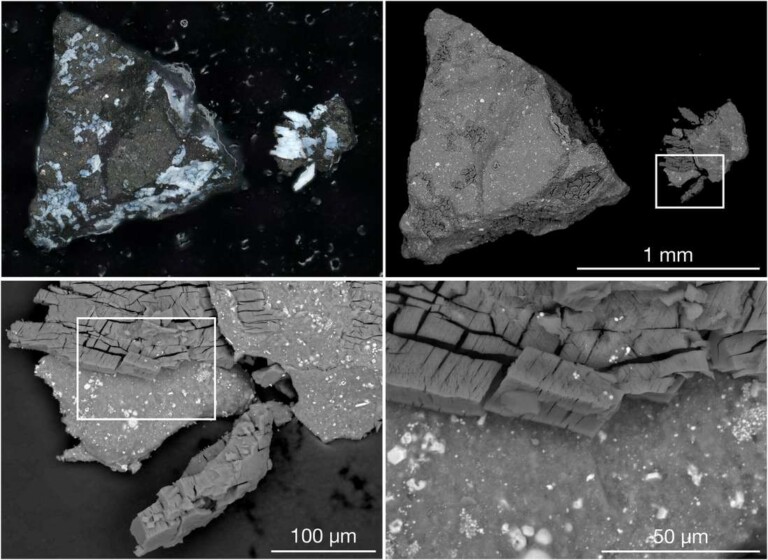Asteroid from the Ocean?

Asteroid Bennu, recently sampled by NASA’s OSIRIS-REx mission, may have originated from a water world, according to new research.
In 2020, the OSIRIS-REx spacecraft collected a sample of regolith—rocks and dust—from Bennu and brought it back to Earth, traveling 200 million miles. Researchers hoped the 4.3-ounce (121.6-gram) sample would reveal secrets of the solar system’s past and the prebiotic chemistry that might have led to life on Earth.
An early analysis, published in Meteoritics & Planetary Science, found that Bennu’s regolith contains carbon, nitrogen, and organic compounds, essential for life. This composition offers a glimpse into the early solar system, with the rocks remaining unchanged for over 4.5 billion years.
However, the sample also contained magnesium-sodium phosphate, which wasn’t detected in previous remote sensing data. This suggests Bennu might have splintered off from a small, primitive ocean world. “The presence of phosphates and other elements suggests a watery past for Bennu,” said Dante Lauretta, co-lead author of the study and OSIRIS-REx principal investigator.
Meanwhile, scientists using the James Webb Space Telescope have identified an ocean world candidate, K2-18b, 120 light-years away in the constellation Leo. This “sub-Neptune” planet, believed to be 8.6 times larger than Earth, shows signs of a water ocean under a hydrogen-rich atmosphere, supported by the abundance of methane and carbon dioxide and a shortage of ammonia detected.